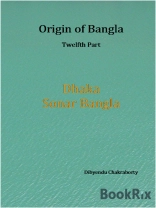The capital city of Bangladesh, situated in the eastern part of the geographical entity known as the Bengal Basin, is Dhaka. The word Dhaka, when used as a place name, is a noun, and it is a unique application of that word. That word has not been used anywhere else to name a place. Apart from having its use as a proper noun, the word ‘Dhaka’ finds its place in Bengali language dictionaries as an adjective, and that is the predominant use of that word. Many experts have put forward a number of explanations regarding the evolution of that place name. All those explanations are derived ones, i.e., none of those explanations can relate that name to that place in a directly meaningful manner.
With the intervention of his ‘Wisp’ in his cerebral journey, Naru, the main character of this series of books, stumbled upon the idea that, deep in the past, there could have existed an island-mountain at the centre of the place that is currently known as ‘Bengal Basin’. The most famous island-mountain in history is known as ‘Atlantis’, as described by Greek philosopher Plato.
The geological and geographical settings of the Bengal Basin can almost seamlessly fit into the description of Atlantis.
The place-name ‘Dhaka’, may be explained satisfactorily and without the application of the idea of being derived, when the concept of a drowned island-mountain is introduced in that geography. In that situation, ‘sonar Bangla’, ‘the golden Bengal’, the other iconic phrase of Bengal, becomes a reflection of reality rather than a metaphor.
Naru undertook a cerebral journey to find the validity of this idea in the available facts from various lines of study.












